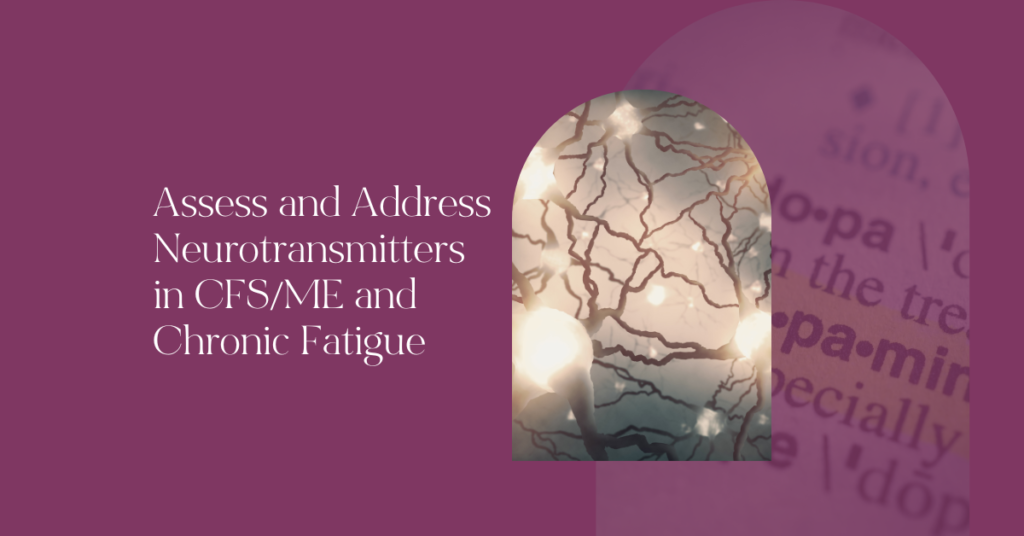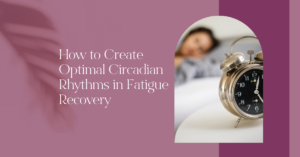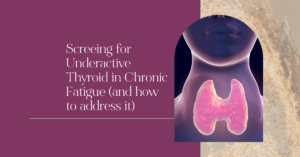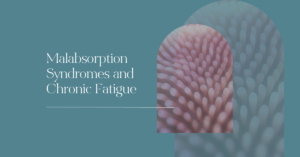What is a neurotransmitter?
A neurotransmitter is a chemical substance that is produced by neurons (nerve cells) in the brain and nervous system. Neurotransmitters are used to transmit signals from one neuron to another. When a nerve impulse reaches the end of a neuron, it triggers the release of neurotransmitters into the synapse (the tiny gap between the neurons). The neurotransmitters then bind to receptors on the adjacent neuron, causing it to become excited or inhibited.
There are many different types of neurotransmitters, each with its own specific function and properties. Some examples of well-known neurotransmitters include dopamine, serotonin, acetylcholine, and gaba. These chemicals are involved in a wide range of physiological and cognitive processes, such as mood regulation, attention, learning and memory, movement control, and many others.
How do neurotransmitters impact fatigue?
Neurotransmitters play an important role in regulating fatigue and wakefulness in the body.
Dopamine is a neurotransmitter that is associated with reward, motivation, and movement. It is also involved in regulating the sleep-wake cycle. Low levels of dopamine can lead to increased feelings of fatigue and decreased alertness.
Other neurotransmitters, such as serotonin, also play a role in regulating fatigue and sleep. Serotonin is involved in regulating mood and can impact sleep quality. Low levels of serotonin lead to difficulty falling asleep and staying asleep.
Overall, the balance of neurotransmitters in the brain can have a significant impact on fatigue levels. imbalances can potentially lead to feelings of exhaustion, sluggishness, and decreased cognitive function.
How do we test neurotransmitters?
There are various ways to test for neurotransmitter levels in the body. However, it is important to note that direct testing of neurotransmitters in the brain is not typically possible in a clinical setting. Instead, indirect measures are used to infer neurotransmitter levels.
Urine Testing
One common way to test for neurotransmitter levels is through a urine test. This involves collecting a sample of urine, which is then analysed to determine levels of neurotransmitter metabolites.
Neurotransmitters are broken down into metabolites after they have been used by the body, and these metabolites can provide clues about the levels of neurotransmitters that were present.
An organic acids test is a test which can assess levels of dopamine and serotonin. However, some people may have genetic polymorphisms which mean that they break down neurotransmitters more quickly or more slowly, which can lead to either a large or low level of metabolites in urine testing. Therefore, my preference in a clinical setting is to look at client symptoms and cross-reference this with test results.
Blood Testing
Blood tests can measure levels of specific amino acids, which are the building blocks of neurotransmitters. By measuring the levels of these amino acids in the blood, it may be possible to infer the levels of neurotransmitters in the brain. Again, this may best be inferred from combining with client symptoms and organic acid urine testing.
Brain Imaging and MRI
Other indirect measures of neurotransmitter levels include brain imaging techniques such as positron emission tomography (PET) and functional magnetic resonance imaging (fMRI), which can be used to visualise the activity of different neurotransmitter systems in the brain.
It’s important to note that testing for neurotransmitter levels is not a routine part of medical care. It is typically only done in certain specialised settings, such as in research studies or in the diagnosis and treatment of certain neurological disorders. If you are concerned about your neurotransmitter levels or have symptoms related to neurotransmitter imbalances, it’s best to speak with a healthcare professional who can help determine the most appropriate course of action.
How do we support better neurotransmitter production?
There are 3 ways that we can approach supporting neurotransmitters:
- Support brain health generally
- Support digestive health
- Offer vitamins, mineral and amino acid to support specific neurotransmitter production
A Healthy Brain and a Healthy Gut Equals Better Neurotransmitter Balance
There is a strong relationship between digestive health and neurotransmitters. The gut and the brain are connected via the gut-brain axis, a bidirectional communication system that allows the two organs to communicate with each other. The gut is also home to a complex ecosystem of microorganisms known as the gut microbiota, which can influence neurotransmitter production and function.
Gaba, dopamine and serotonin are produced in the gut and therefore, a healthy and functioning gut microbiome makes for a healthy neurotransmitter production.
To learn more about digestive health you can read my previous post called Is Your Gut Health Making You Tired?
Disruptions to the gut microbiota can lead to imbalances in neurotransmitter production and function. These imbalances have been linked to various neurological and psychiatric disorders, including depression and anxiety.
Signs of a disturbed microbiota include gas and bloating, constipation, diarrhoea, acid reflux or food sensitivity reactions.
Common causes of digestive imbalance
These are some of the common causes of digestive imbalance with chronic fatigue clients:
- Stress
- Poor diet (high in refined carbohydrates and low in protein, vegetables and healthy fats)
- Infections such as parasites, yeast, bacteria or mold
- Overgrowth of commensal bacteria e.g small intestinal bacterial overgrowth (SIBO)
- Inadequate chewing or eating on the go
- Sedentary lifestyle
Supporting healthy neurotransmitter production may require bringing these imbalances back into balance through changes in diet, lifestyle and supplements.
Brain Health
Poor brain health may result in poor neurotransmitter production or changes in neurotransmitter receptor sites in the brain. Therefore, before we consider supporting specific neurotransmitters specifically, we want to consider how we can support brain health generally.
The needs of the brain are:
- Glucose – which means good metabolic health and stable blood sugar. You can refer to my previous post on Carbohydrates, Blood Sugar and Glucose Monitoring for more details.
- Oxygen – we must be able to get oxygen to the brain to make brain energy. Common causes of poor brain oxygenation are:
- Inactivity and sedentary lifestyle
- Blood pressure which is too high or low
- Anaemia – you can refer to my previous post where I cover how to Assess and Address Anaemia.
- Anti-inflammatory Environment – which is supported by addressing inflammatory triggers such as food, toxins, trauma and infections and supporting the body with anti-inflammatory nutrients such as omega 3 fatty acids, good quality diet, balanced blood sugar, maybe a little fasting for autophagy and plant based nutrients, of which there are many but polyphenols and flavonoids are most popular.
- Appropriate Stimulation – too much stimulation may increase oxidative stress and inflammation which is counterproductive to brain health but too little stimulation can also encourage negative plasticity. Therefore we need to stimulate our bodies and brains in different ways, but also, not too much.
- Sleep – healthy brains need the right amounts of quality and quantity sleep.
In summary, once you have met the basic foundations of tending to your gut and your brain, you might be ready to look at some more specific neurotransmitters support.
Gaba
Gamma-aminobutyric acid (GABA) is a neurotransmitter that is widely distributed throughout the central nervous system (CNS) in the brain. It is the main inhibitory neurotransmitter in the brain, meaning that it helps to regulate and reduce the activity of other neurons.
People with poor gaba activity may tend towards anxiety and panic to the point that they have an ongoing sense of dread. They may be worriers and have a poor stress tolerance. They may struggle to switch off and relax and their attention may be a little disorganised and chaotic. Gaba is a calming neurotransmitter and supporting gaba can help with stress, anxiety and sleep quality.
Ways we can support gaba include:
- Nervous System Toolbox e.g. what I teaching in Nurturing Resilience
- Glycine
- L-theanine
- Valerian
- Passion Flower
- Lemon Balm
- Taurine
- Vitamin B6, Magnesium, zinc and manganese
My favourite products* to use with my clients are:
- Glycine by Thorne Research up to 3g per day
- Magnesium Threonate by Cytoplan up to 3 capsules per day
- L-theanine and Lemon Balm by Viridian usually 2 before bed but this can be used during the day if someone is feeling a little anxious.
*Please consult your health care practitioner before making any changes to your supplement regime
Serotonin
Serotonin is one of the better known neurotransmitters, low levels often said to be responsible for depression although in recent years this has come under scrutiny (Nature, 2022). Symptoms of impaired serotonin may be associated with loss of pleasure in hobbies and interests, feelings of rage and anger, difficulty finding joy in the pleasures of life, low mood when it is cloudy or there is a lack of sunlight, loss of enthusiasm for favourite foods, relationships, and activities or unable to fall into a restful sleep.
Low iron levels may be associated with poor conversion of the amino acid tryptophan to 5-hydroxytryptophan (5-HTP) which is the precursor to serotonin. Therefore, if you identify with the symptoms of low serotonin, you may want to check for low iron. You can read more about how to do this in my post on Assess and Address Anaemia.
Oestrogen increases the sensitivity of serotonin receptors, therefore, low oestrogen levels which may occur in peri- and post-menopause and at the end and early part of the menstrual cycle in women who have a regular hormonal cycle, may have an impact on mood. If oestrogen is deficient, this may need to be addressed to have a positive impact on mood.
We can support healthy serotonin production with:
- Adequate light exposure – ideally getting outside within 30-60 minutes of waking for 3 minutes on a sunny day, 10 minutes on days with some cloud and 20-30 minutes when there is more intense cloud cover.
- Supplementing with 5HTP – however this may be controversial as there is a mechanism by which inflammation (and low oestrogen) may convert 5HTP to a substance called quinolinic acid which may negatively impact inflammation and pain. If you feel worse taking 5HTP my recommendation is to discontinue and find other ways to support your body.
- Ensure adequate iron, Vitamin B12, Folate and Vitamin B6 and magnesium.
- Support low oestrogen if necessary, this may require Hormone Replacement Therapy depending on your time of life. In some cases low oestrogen can be due to high stress, under-eating and over-exercising, therefore, these factors may also need to be addressed.
Many of the symptoms of low serotonin also look like a nervous system freeze. A toolbox to support the nervous system to come out of freeze (e.g. Nurturing Resilience) may be a valuable asset in improving these symptoms.
Dopamine
Dopamine is the neurotransmitter of motivation and reward. Therefore, signs of low dopamine may be an inability to self motivate, an inability to start and finish tasks, feeling worthless, feeling hopeless, short temper, poor stress tolerance, anger or aggression under stress and a desire to self isolate.
(note: from a nervous system perspective this also sound a little bit like freeze with some fight energy underneath)
One of the best ways to raise dopamine is with cold water exposure or something similar which is hard to do but leaves you feeling good afterwards. The challenge with someone who has low dopamine is getting them to do it in the first place – but this is a muscle that gets stronger with practice.
Therefore, if I suspect that a client has low dopamine my top support list is:
- Brain health; blood sugar, oxygenation, reduce inflammation, improve sleep
- Nervous system support
- Cold water exposure
Then if more support is required we can look at:
- Tyrosine
- Vitamin B6, in the form of P-5-P
- Selenium
- Blueberry Extract
- Alpha Lipoic Acid
There is a product which I like to use with clients called Dopaboost by Designs For Health
Acetylcholine
Acetylcholine (ACh) is a neurotransmitter that is widely distributed throughout the nervous system. It is the first neurotransmitter to be identified and is involved in a wide range of physiological processes, including muscle movement, memory, learning, and attention.
A drop in acetylcholine activity is very important as this is often responsible for cognitive decline in women after menopause. Symptoms of impaired acetylcholine activity include loss of visual and photographic memory, loss of verbal memory, memory lapses, impaired creativity, difficulty calculating numbers, recognising faces and objects, difficulty with directions and spatial orientation and slow mental responsiveness.
A need for acetylcholine can also look like Alzheimer’s disease, therefore it is always important to see your doctor for the appropriate investigations.
If I suspect a client has a decline in acetylcholine activity I want to make sure that their diet is rich in choline containing foods such as egg yolk, liver, beef, tofu, nuts, cream and fatty cheeses (preferably from organic dairy if tolerated). Supplements like acetyl-L-carnitine, vitamin B6 (p-5-P) Huperzine-A and phosphatidylcholine can also be very helpful.
Conclusion
In summary neurotransmitters may impact energy, sleep, mood and cognitive function. Accurate testing of neurotransmitters can be challenging which is why looking at symptoms alongside laboratory testing, like an organic acids test, can be beneficial.
The starting point when supporting neurotransmitters is to look at the big picture. This means addressing brain and gut health first and perhaps considering targeted supplementation for specific neurotransmitters as necessary.
If you would like more help with your health recovery journey you can find out more about working with me here.

